Plastic Sorting Chemical Recycling 02-10-2021 - Arhive
Plastic Sorting Chemical Recycling
-Climate-neutral plastics are viable, claim scientists
Professor André Bardow thinks that the answer is in combining technologies
Scientists from several universities have demonstrated that it is possible to economically produce plastics that have a net-zero greenhouse gas emissions balance over their entire life cycle.
Researchers from ETH Zurich, RWTH Aachen University and the University of California, Santa Barbara created a computational model of global plastics production and disposal, and found the answer in a combination of three technologies that already exist: plastics recycling, and plastics production from biomass and from carbon dioxide through carbon capture and utilisation (CCU).
The calculations showed that the key is to use as much recycled plastics as possible, supplemented by the other two manufacturing methods. These three types of manufacturing correspond to the principle of the circular economy. By optimally combining the three technologies, the quantity of energy required can be reduced by 34-53 per cent compared with the current fossil-based manufacturing practice, claim the researchers, supplemented with extensive carbon capture and storage (CCS) – particularly in waste incineration plants, where plastics products are burned at the end of their life cycle.
The cost of the newly proposed manufacturing method is on a par with that of this alternative fossil manufacturing scenario. Under favourable conditions, by 2050 the cost of global plastics production can be reduced by as much as $288 billion per year compared to the alternative scenario, they claim. To achieve this, biomass, carbon dioxide and renewable electricity must be available at low cost, the extraction and supply of petroleum must become more expensive, and incentives must be provided for investment in recycling.
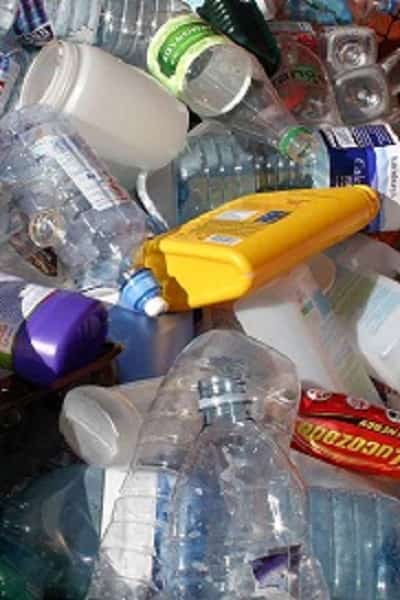
-SIBUR developed an additive to extend the life cycle of polymers
SIBUR has developed and patented an additive to extend the life cycle of polymers, the company said in a statement.
RF Patent No. 2717664 “Concentrate Composition and Method for Increasing the Viscosity of a Polymer” was obtained by SIBUR last year. The invention relates to the use of bottle plastic – PET, one of the most popular types of polymers in processing.
“The development took about a year. We needed to find a solution that would allow us to obtain a product of better quality. We did it. And this is the result of the teamwork of our R&D center,” commented Irina Ryzhikova, a leading researcher at NIOST. Plastic Sorting Chemical Recycling
The additive developed at NIOST allows maintaining the basic physical and mechanical properties of this material at the primary level even after its mechanical processing. “This increases the number of possible PET recycling cycles and removes restrictions on the options for its recycling, which could arise due to a decrease in the quality of the material after mechanical processing,” said Vladimir Bushkov, General Director of NIOST.
Commitment to the principles of a circular economy and the development of polymer recycling are among the key focuses of SIBUR’s Sustainable Development Strategy. Plastic has a high recyclability and can be reused in a production cycle up to 10 times or more. The use of recycled polymers in production reduces the impact on the environment: it reduces the carbon footprint of the final product and helps to reduce the amount of waste sent to landfills.
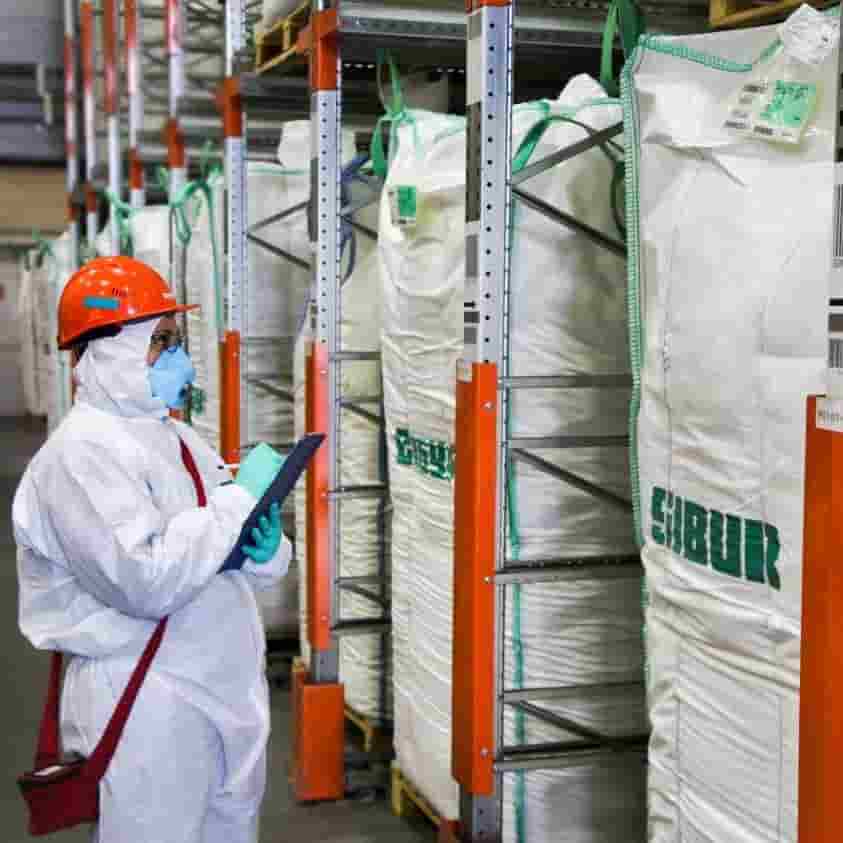
-New Geely selected LANXESS as a supplier of innovative lightweight structural component
Chinese car manufacturer Geely has selected specialty chemicals company LANXESS as supplier of choice for an innovative front end carrier (FE) structural component, which will be used in a coming passenger car model, said the company.
The component’s design concept is a state-of-the-art hybrid design solution going beyond the traditional square/rectangular form FE structure. While the lower cooler mounting is in sheet metal, the complex upper member was developed using the highly filled and heat stabilized Durethan BKV50H2.0 EF, a material well suited for structural components that require high stiffness and strength. The full plastic design for the upper section caters to a wide range of requirements of this multi component assembly. Plastic Sorting Chemical Recycling
The concept not only demonstrates LANXESS’ competence of hybrid solution application in automotive lightweight structures and the advantage of using high modulus thermoplastic material such as Durethan BKV50H2.0 EF, but also provides a cost effective solution to achieve multiple saving targets.
LANXESS was chosen by Geely as material supplier based on its expertise in handling the part design as well as the suitability of its Durethan polyamide material. “Yet designing a plastic structural component and providing the right material is not enough. Considering the overall market background, customer expectations, understanding the tasks on hand and preparing different potential design proposals for the FE structure was also key in developing this project,” Add Tsui, project manager at the High Performance Materials (HPM) business unit, said.

-Nestlé to build recycling plant in Mexico
Nestlé Mexico has signed an agreement, its first outside of Europe, with UK-based company Greenback Recycling Technologies to build a chemical recycling plant capable of processing flexible plastic packaging in Mexico. The plant will address the challenge of recycling post-consumer plastic waste in the country and help to implement a circular economy for plastic packaging.
The agreement targets plastic packaging not currently recycled, including multilayer flexible and aluminum-laminated plastics, and aims to meet the technical and commercial requirements to ensure the circularity of food-grade plastics.
The plant will use an innovative microwave-induced pyrolysis technology developed by Enval, a UK-based chemical recycling company. It transforms plastics into oil feedstock to produce new plastic, effectively closing the loop on packaging recycling and enabling previously unrecyclable packaging to become valuable and environmentally responsible. Plastic Sorting Chemical Recycling
It is claimed to be the only technology capable of recycling plastic aluminum laminates by splitting them into high-value oil and aluminum with a low-carbon footprint.
The project will enable the recycling of approximately 6,000 tons of flexible plastic packaging in its first year, with sustained growth in volumes and installed capacity expected over time.
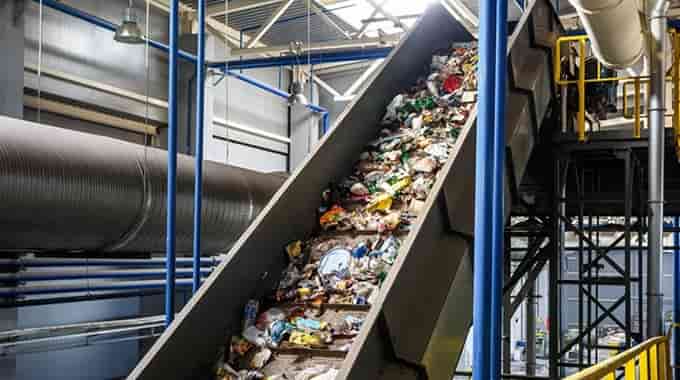
Efficient water and urea electrolysis with bimetallic yolk-shell nanoparticles
Electrolytic hydrogen production powered by renewable energy is seen as an environmentally friendly means to ameliorate global climate and energy problems. In the journal Angewandte Chemie, a research team has now introduced a novel and inexpensive material for electrodes that may provide for highly efficient, energy-saving hydrogen production: porous, phosphorized CoNi2S4 yolk-shell nanospheres.
Both half reactions of water electrolysis — hydrogen and oxygen evolution — are unfortunately slow and require a lot of power. Catalytically effective electrodes, particularly those based on precious metals, can accelerate the electrochemical processes and improve their energy efficiency. However, their large-scale use is impeded by high costs, limited abundance, and low stability. Alternatives based on abundant, inexpensive metals usually do not work satisfactorily for both half reactions. Plastic Sorting Chemical Recycling
A team led by Shuyan Gao (Henan Normal University, China) and Xiong Wen (David) Lou (Nanyang Technological University, Singapore) has now developed a novel, inexpensive, multifunctional electrode material based on cobalt (Co) and nickel (Ni) for efficient electrocatalytic hydrogen production. To make the material, nanospheres made of cobalt-nickel-glycerate are subjected to combined hydrothermal sulfidation and gas-phase phosphorization. This forms objects called yolk-shell nanoparticles made of phosphorus-doped cobalt-nickel-sulfide (P-CoNi2S4). These are tiny spheres with a compact core and a porous shell with a space in between — much like an egg whose yolk is surrounded by the egg white and so does not touch the shell.
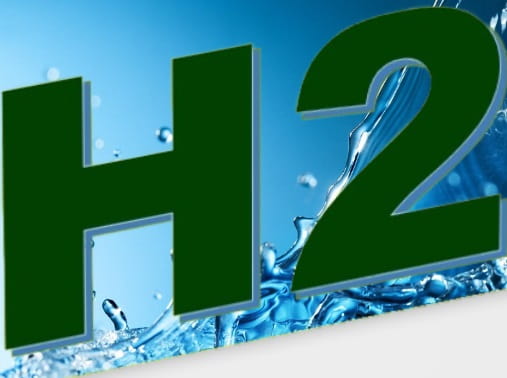
Researchers in the EU RECOTRANS (Integrated manufacturing of REcyclable multi-material COmposites for the TRANSport sector) have used microwaves and laser welding to obtain recyclable composites for automotive and transport.
The project, led by AIMPLAS, is intended to help produce lighter and, therefore, less polluting vehicles without increasing costs. RECOTRANS researchers obtained a reduction in costs and energy consumption in the manufacture of three prototypes. They also confirmed the feasibility of recycling and processing the resulting material.
The researchers developed new thermoplastic composites through the integration of microwaves and laser welding. They demonstrated that microwaves can be used to optimize the curing process of composites in resin transfer moulding (RTM) and pultrusion, which reduces the energy consumed, shortens manufacturing times and helps produce better-quality parts. It has also been shown that laser technology can be used to obtain stable joints between the composite and metal, thus making it possible to do without riveted joints, which increase structural weight. Finally, studies were carried out on the recyclability of the thermoplastic composite by using it to manufacture a new part. Plastic Sorting Chemical Recycling
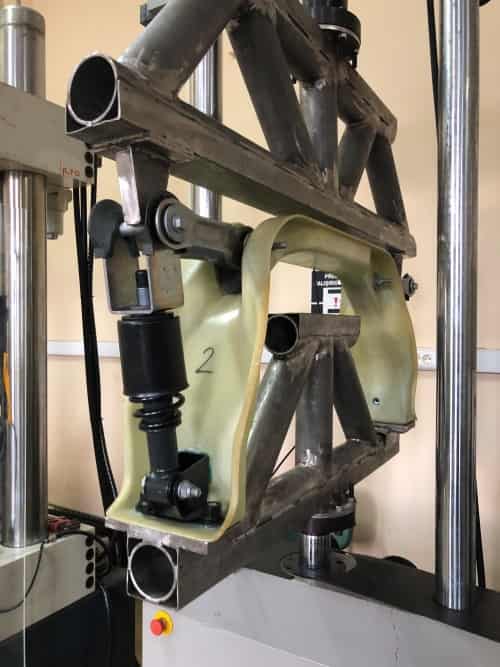
-M&As: Versalis to acquire remaining 60% stake in Finproject
Versalis to acquire remaining 60% stake in Finproject
Italy’s chemical firm Versalis, an Eni company, says that it has exercised the call option to buy the remaining 60% of the shares of the Marche region based industrial group Finproject, an Italian compounder* that is also involved in the production of ultralight products, in order to raise its stake to 100%.
The transaction, which will be formally completed with closing expected in the fourth quarter of 2021, follows the initial acquisition of a 40% stake in the company in July 2020 from VEI Capital, and confirms Versalis’ strategy to become the Italian leader in the high performance formulated polymers sector. Plastic Sorting Chemical Recycling
Finproject is the leading operator in Italy in the production of cross-linkable and thermoplastic compounds for industrial uses and in the moulding of products, in particular for the footwear sector, and of products in the ultralight expanded materials marketed under the XL Extralight brand which, in collaboration with some of the most important brands, are intended for the consumer end market.
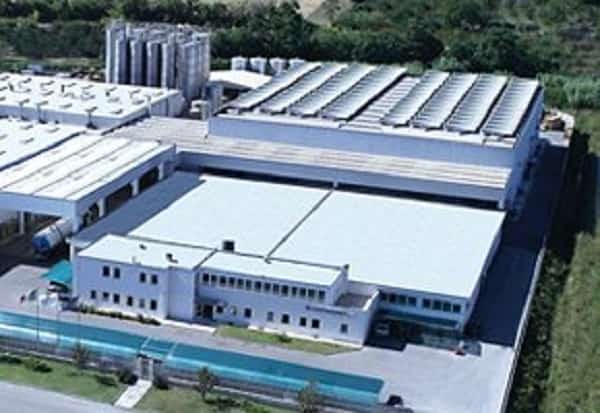
-PVC, PP prices on the move in September
Demand for PVC pipes and vinyl siding is higher in 2021 as home sales and remodeling projects drive sales.
North American PVC resin prices saw a small increase in September, with regional polypropylene prices down slightly and prices for all other commodity resins flat for the month.
Suspension PVC prices moved up 2 cents in September after a similar hike in August. Prices for the material now have increased 26.5 cents so far in 2021 and a net of 42 cents since January 2020. Plastic Sorting Chemical Recycling
Some North American PVC makers had attempted to add a 5-cent increase mid-September after the Louisiana coast was hit by Hurricane Ida on Aug. 29. Major plants operated by Shintech Inc., Formosa Plastics Corp. USA and Westlake Chemical Corp. all were shut down for periods of time.
A major Shintech PVC unit in Freeport, Texas, also was closed because of a lack of vinyl chloride monomer feedstock from supplier Olin Corp. But quick restarts of these plants helped boost supply and limited the September move to 2 cents.
Some suppliers now are seeking a 5-cent hike for Oct. 1. Market sources said that attempt could be challenged by market seasonality, with construction market demand slowing in fall months.
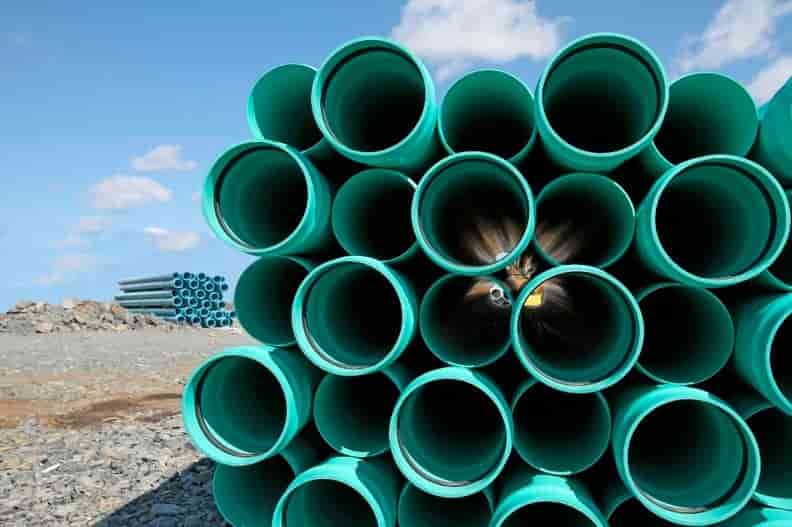
-Europe petchems producers aim to pass on higher costs as natgas pushes electricity prices
European petrochemicals producers will aim to pass on their higher input costs to customers in coming months as high natural gas prices filter down to electricity bills.
Unlike in the fertilizers industry, where production curtailments have already been announced by several companies due to the high price of natural gas – a key feedstock for the sector – output cuts are not yet on petrochemicals companies’ plans, sources said. Plastic Sorting Chemical Recycling
The global jump in natural gas costs due to short supply and high demand will affect the petrochemicals industry via electricity prices, as Europe’s lack of raw materials makes the region highly dependent on imports of gas to produce a large portion of its electricity.
PRICES UP – EVEN MORE
Earlier in the year, petrochemicals prices posted highs as global supply chain woes pushed logistics costs through the roof, but a recovering economy made the price rises manageable for buyers, able to pass on high costs onto consumers.
However, a second spike in input cots within a year may be too much to take on by consumers, who could decide this time not to buy at all; that, in turn, could cause a reduction in activity in downstream sectors, ultimately slowing down the recovery.
The outlook within petrochemicals is mixed; some sources said that output cuts are not on the horizon if higher prices can be passed on in coming months.
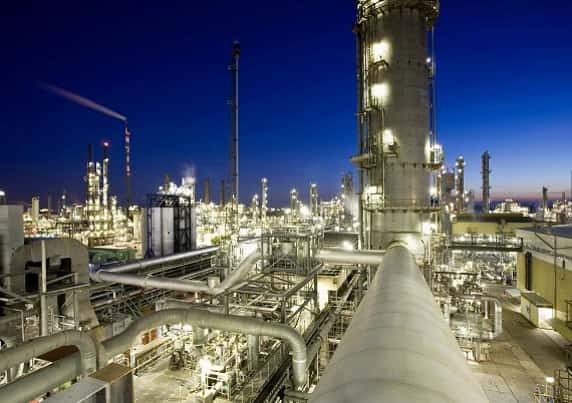
Through this rebranding, Teijin Automotive Technologies becomes a proven manufacturer of highly-engineered materials for dynamic market divisions with the ability to supply consistent materials and components to customers across North America, Europe and Asia – a capability, it adds, no other supplier can provide.
Spanning several mobility related industries, including automotive, heavy truck, marine and recreational vehicle segments, the new organisation which includes Teijin’s automotive composites team in Japan, is positioned to provide advanced materials solutions through its 29 strategically located manufacturing and technical centres. Plastic Sorting Chemical Recycling
Utilising all the strengths from the previously separate companies, Teijin Automotive Technologies can provide solutions for the next generation of mobility.

Plastic Sorting Chemical Recycling
